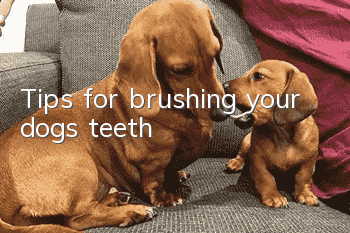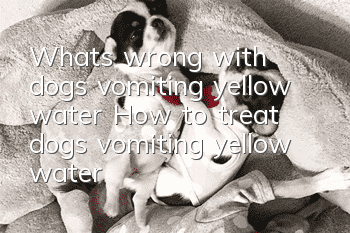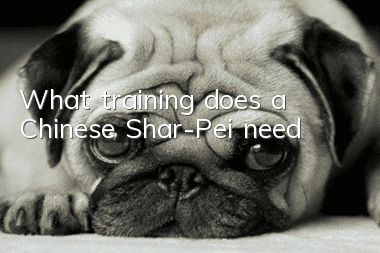How many meals should a dog eat a day?

I believe everyone has these questions. If dogs overeat, become overweight, or lose appetite, it may be because our daily feeding methods and amounts are wrong.
How can we solve the problem?
Keep in mind the three elements for more appropriate feeding
Whether the dog is well-nourished and healthy and strong depends on how careful we are and whether the feeding management of the dog is precise enough.
So, how many meals should a dog eat a day? How much should each meal eat to be more appropriate and healthier? These all require professional and scientific feeding.
Personalized “food intake” according to the dog’s conditions
Today, the Pet Research Institute will show you how to feed dogs in the most scientific and healthy way?
Dogs of different ages, breeds, and growth environments require different caloric intake.
Different age groups
First, let’s take a look at dogs at different ages: Generally, dogs under 1 year old basically eat three meals a day; dogs under 3 months old eat four meals a day.
Then the question becomes, how much should a dog eat in one meal?
In fact, the regular dog food we buy every day has detailed "feeding reference standard amounts" on the outer packaging.
If you are really not sure how much your dog eats, you can refer to the feeding standards on the outer packaging. But whether it is a puppy or an adult dog, it is best not to overdose in a single feeding.
Different dog breeds
Next, there are different breeds of dogs: large dogs such as Labradors and Golden Retrievers have relatively large bones, so their demand for calcium and protein is also relatively large. When feeding, you can choose the calcium content High dog food.
For medium-sized dogs such as Shiba Inu, Husky, and French Bulldog, how much you feed depends on their amount of exercise. If the dog is not active on its own, then there is no need to feed it so much.
Another type is small dogs like Chihuahuas, Pomeranians, and Teddy dogs. Their own amount of exercise and appetite are not large.
But they grow very fast, so during their growth period, they need to pay attention to nutritional supplements. Eat small and frequent meals in moderation, and you can feed them normally when you reach adulthood.
Different growth environments
Finally, there is the environment in which dogs grow: when the temperature is high in summer, dogs tend to lose their appetite. You can increase the intake of vegetables and drinking water to prevent it from losing too much weight.
In winter, dogs will increase their appetite in order to store body heat and fat. The intake of meat and drinking water can be increased, but the amount of a single meal must be controlled to prevent the dog from becoming obese.
In different seasons, the temperature of food and drinking water needs to be adjusted in time to keep it warm in winter, cool in summer, and warm in spring and autumn.
Quantitative timing, regular and healthy
Regarding the daily feeding of dogs, we need to understand basic common sense and have the necessary basic skills for raising dogs.
The dog's food intake is a dynamic data, and we can adjust it in a timely manner according to the dog's age, size, appetite and other actual conditions.
For the three major elements mentioned above, when we are feeding, we must not only eat small meals frequently and feed rations, but also feed at regular intervals.
The dog’s digestive system actually needs to form a fixed biological clock. When we feed, we should not advance or delay. Regular feeding can form a conditioned reflex in the dog, allow the dog’s digestive system to work and rest regularly, and improve the absorption and utilization of food.
Moreover, the best feeding time is after the dog exercises and defecates. It is worth noting that it is best not to feed your dog 3 hours before going to bed at night to avoid indigestion.
Therefore, raising a dog requires not only care and patience, but also a certain degree of professionalism. Only by learning more scientific and professional pet-raising knowledge can you be responsible for the health and nutrition of your dog~
- largest dog in the world
- What's wrong with dogs panting heavily?
- What's the matter with Corgi's eyes?
- How to train a Shiba Inu puppy? Training tutorial for Shiba Inu puppies!
- Common causes of hair loss in dogs
- Where is the best place to buy Shiba Inu?
- How to train a German Longhaired Pointer to be obedient
- How to feed an English Bulldog
- How old is a puppy before it can be bathed and how should it be bathed?
- How much does a Pug cost_Is it easy to raise? Pug pictures_Price_Training_Introduction



